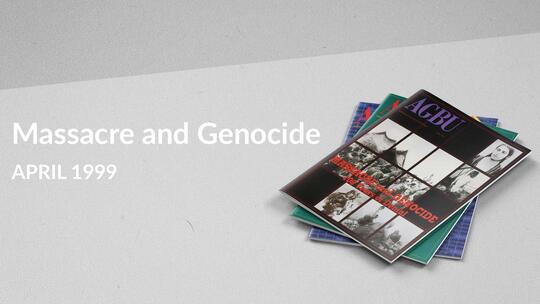In the labyrinth of upper-middleclass suburbia, the Balakians always seemed to fit in. We were Christian, professional, apparently white enough. Law-abiding, hard-working, and, yes, American, as far back as 1903, when my grandfather Bedros Aroosian arrived in New Jersey. We weren’t vacationing with the Rockefellers on Fisher’s Island, but we were welcomed into the fold of upper-middleclass America, and our papers seemed to be in order.
